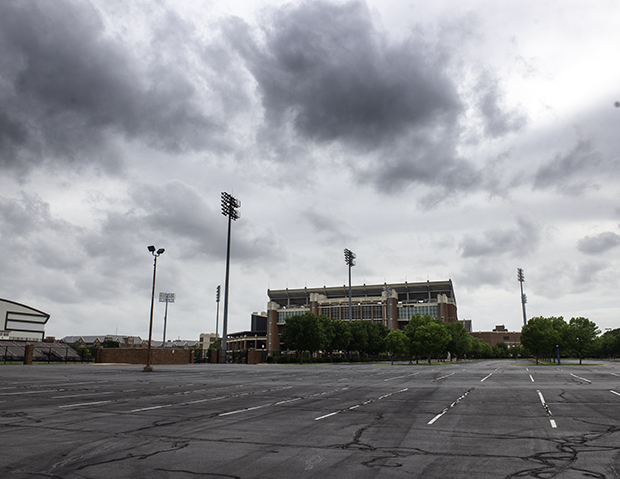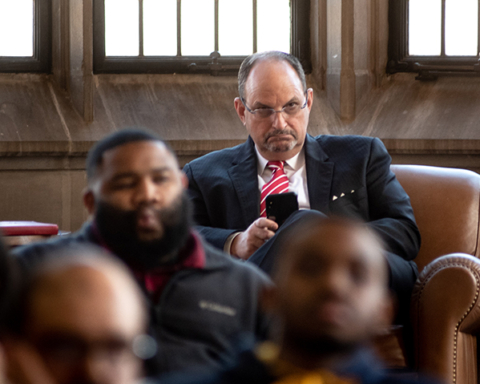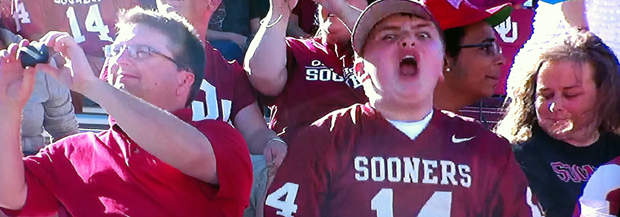COVID-19 has cast an incredible pall on the upcoming season — and my fear is the season won’t just be handicapped. It might not happen and probably shouldn’t.
Try this scenario on for size: It’s the afternoon of Sept. 10, two days before OU’s big game against Tennessee.
The anticipation for this long-awaited game gets a kick in the gut when news has come out of the OU football program that an offensive lineman has tested positive for COVID-19.
One player. Just one player. He can’t be named because of privacy rules. OU’s entire group of offensive linemen, who all train closely, must be quarantined for two weeks, up until Sept. 24, two days before the Army game in New York.
It’s possible the rest of the offensive unit, even though it trains separately from the lineman, must face quarantine. The game against Tennessee can’t go on because, obviously, OU doesn’t have players in reserve, like the NFL. And having two-way players on a Division-I level is possible but not feasible today.
Ultimately, it will be left to the conferences to decide whether teams will play — and it doesn’t look good right now.
Needless to say, the integrity of the game is severely compromised. Game cancelled. Season jeopardized.
I conjured up this possibility while going over what could go wrong this college football season. COVID-19 has cast an incredible pall on the upcoming season — and my fear is the season won’t just be handicapped. It might not happen and probably shouldn’t.
It’s the perfect storm for college football.
The pandemic has hit certain regions harder than ever. The Big 12 hasn’t been spared with its two Oklahoma and four Texas schools in states wallowing in rapid upticks in reported coronavirus cases.
The Southeastern Conference, featuring national champion LSU and always-contender Alabama, will have schools mired in areas where the virus has hit hard. The Big Ten could feel the effects when it gets colder.
If California doesn’t get a handle on controlling the pandemic spread, you can pretty much count out the Pac-12.
Ultimately, it will be left to the conferences to decide whether teams will play — and it doesn’t look good right now.
So, where does that leave us college football fans?
On the distinct possibility the show will go on, expect it to be a glorified NFL combine for players who want to go on to the next level. The nation’s healthiest players, who have undergone deep testing for COVID-19, will perform in scaled-down games at select stadiums.
Unfortunately, Sooner fans might have seen the last of some prominent draft-eligible players. In the upcoming season, schools will be trying hard to keep players on scholarship or out of the transfer portal while their parents want them close to home as the pandemic continues.
Recruiting would also be impacted. In some states, including Texas, coaches are working on a plan for the state’s public and private schools to have football played in the spring and spring sports played in the fall.
A Dallas Morning News survey of football coaches determined that 84 percent of them would be on board with a change if the season can’t start in August. Guesses are the season would start in February.
I haven’t heard whether this is being considered by the NCAA. A delayed season would be better than no season, especially with programs that generate multi-million-dollar revenue.
I don’t like my predictions.
I hope I’m totally wrong.
But I can’t see a good outcome at this point, not with the pandemic ruining all manner of American life.
Here’s hoping the 2021-2022 season returns in traditional form.



 Follow
Follow


